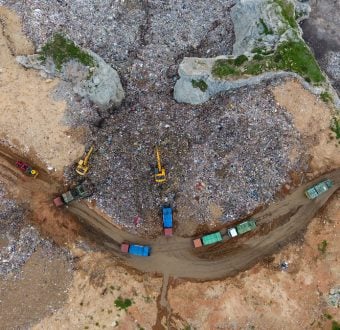Four days before the Nebraska Public Service Commission is set to decide whether to issue permits to Canadian oil company TransCanada to build the controversial Keystone XL pipeline, TransCanada’s existing Keystone 1 pipeline spilled a reported 210,000 gallons of oil in an agricultural area of Marshall County, South Dakota. Greenpeace recently issued a report on the frequency of spills from existing pipelines.
In response to the spill, Greenpeace Tar Sands Campaigner Rachel Rye Butler issued the following statement:
“Just days before the Nebraska Public Service Commission is set to make a historic decision on Keystone XL, a new tar sands pipeline, the writing on the wall to reject this pipeline could not be more clear. These pipelines are bound to spill, and they put communities, precious drinking water, and our climate at risk. An approval of yet another pipeline is a mistake.
“The existing Keystone pipeline just saw an enormous spill of oil yet there is an attempt by the same company to build a brand new pipeline, Keystone XL, that would pump over 800,000 barrels of tar sands oil per day if built.
“The sad truth is that oil spills are not uncommon. The three companies proposing to build tar sands pipelines — TransCanada, Kinder Morgan and Enbridge — have seen an average of one spill per week since 2010. The Keystone XL pipeline could expect 59 significant spills over a 50-year lifetime.
“The Nebraska Public Service Commission needs to take a close look at this spill. A permit approval allowing Canadian oil company TransCanada to build Keystone XL is a thumbs-up to likely spills in the future. The company does not have a clean track record of preventing spills, so why should they be able to build more pipelines?
“Banks that put money behind these projects should stop funding and providing financial services to pipelines that threaten human rights, put our climate at risk, and pose already realized risks to drinking water and the environment.
“It is time to say no to outdated fossil fuel infrastructure and invest in clean energy instead.
“At the end of the day, you can’t drink oil.”
###
Contact:
Valerie Holford, 202-365-5336 or [email protected]

